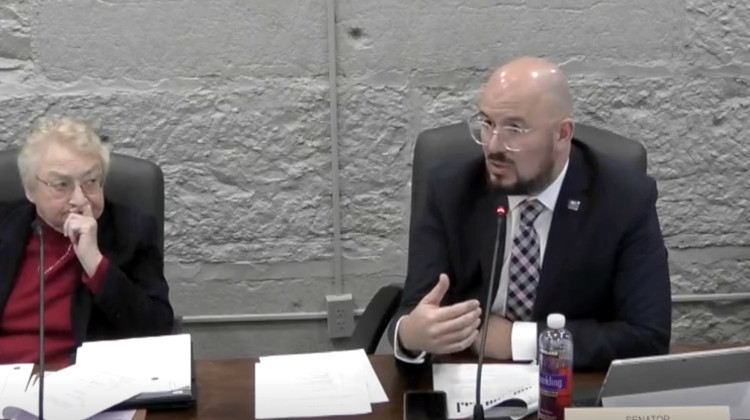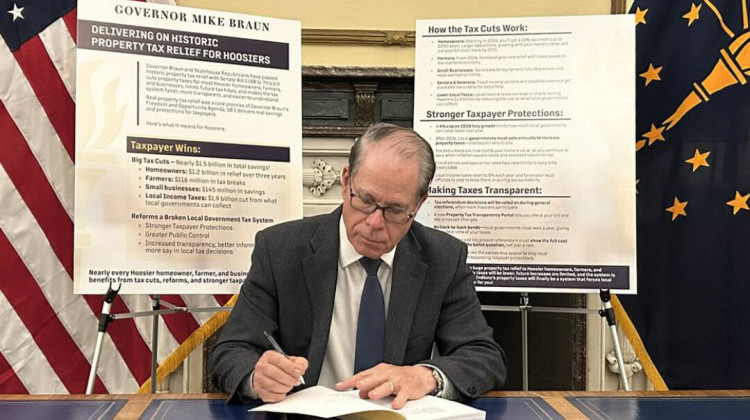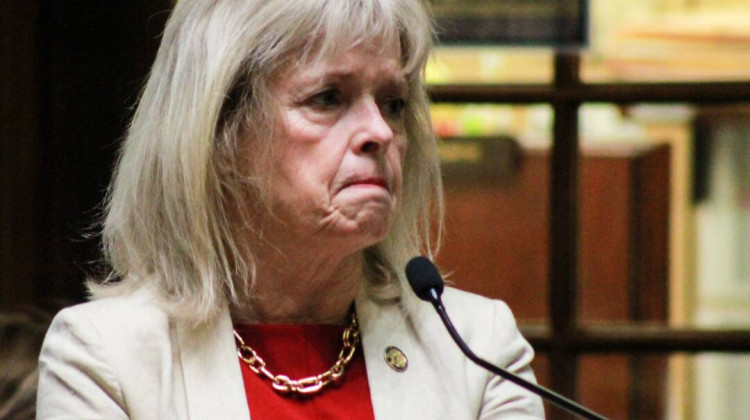
Mitch Roob, the new secretary of the Family and Social Services Administration, said the Braun administration will begin checking eligibility once a quarter instead of once a year.
Abigail Ruhman / IPB NewsA measure that would ban children under 16 from accessing social media without parental permission passed the Senate Judiciary Committee this week. However, some committee members who support the idea behind the bill say they are concerned about how it will be implemented.
SB 11 would require social media companies to get a parent’s permission before allowing users 15 or younger to create accounts. If a child lies about their age to make an account, social media companies would have 90 days from when they first learned of the violation to comply with the law.
The original bill would have allowed parents to sue social media companies if their young child was able to access the site without permission. But an amendment changed that. Now, only the Indiana attorney general would be able to bring forth a lawsuit.
The amendment also removed language that would have allowed parents to seek damages from anyone who commits online bullying against their child.
Sen. Mike Bohacek (R-Michiana Shores), the bill’s author, said the bill is about protecting children’s mental health and providing parents with tools. He said only minors’ parents would be required to verify their age, likely using something like a drivers’ license or credit card.
Bohacek introduced a bill last year that requires adult websites to verify users’ ages. That law went into effect in August and is facing lawsuits from multiple pornography websites.
Bohacek assured committee members that this bill is different.
“It’s not mandatory age verification for everybody,” he said.
READ MORE: How do I follow Indiana’s legislative session? Here’s your guide to demystify the process
Join the conversation and sign up for our weekly text group: the Indiana Two-Way. Your comments and questions help us find the answers you need on statewide issues, including our project Civically, Indiana and our 2025 bill tracker.
Bohacek said it will be up to social media companies to identify young users who are lying about their ages. He said technology is advanced enough that companies can tell when a user is younger than the age they selected when setting up their account.
He added that the goal is not to punish social media companies. If a user is found to have lied about their age, companies have the 90-day grace period to fix the issue.
Sen. Rodney Pol (D-Chesterton) said he agrees with the intent of the bill, but he’s unsure whether social media companies can accurately identify users who are younger than their registration ages. He also doesn’t want social media companies to more aggressively collect user data from children — even if the intent is to better identify young users who lie about their age.
“How this works in a meaningful way, I think, is yet to really be seen,” he said.
Pol was the only committee member who voted against the bill, but he was not the only one with concerns. Sen. Greg Taylor (D-Indianapolis) said he wants to create more clarity around the parental verification process.
“I don’t think we should leave it up to the industry,” he said. “I think we should have something that safeguards the traditional adult who’s a guardian or parent.”
The bill passed out of committee by a 10 to 1 vote. The full Senate will be able to propose amendments upon the bill’s second reading.
Kirsten is Indiana Public Broadcasting's education reporter. Contact her at kadair@wfyi.org or follow her on Twitter at @kirsten_adair.
 DONATE
DONATE






 Support WFYI. We can't do it without you.
Support WFYI. We can't do it without you.